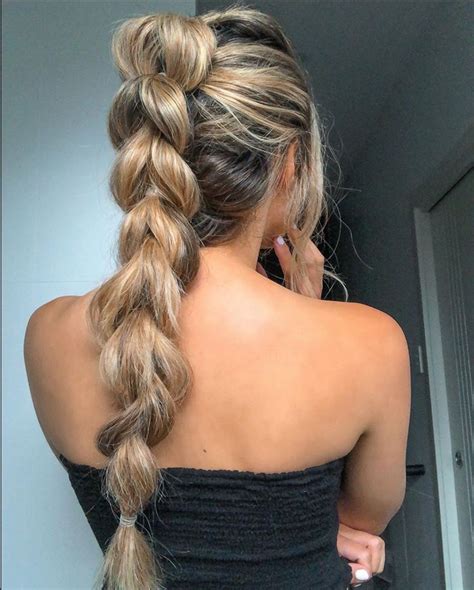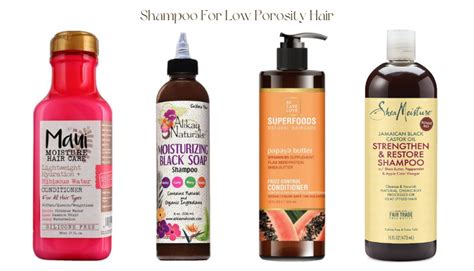Introduction

Natural hair, with its unique textures and characteristics, requires specialized care to maintain its health and beauty. Choosing the right shampoo is crucial for cleansing, nourishing, and protecting your tresses. This comprehensive guide explores the top 5 shampoos designed specifically for natural hair, providing in-depth analysis, pros and cons, and expert insights.
Table 1: Overview of Top 5 Shampoos for Natural Hair
| Shampoo | Key Ingredients | Benefits |
|---|---|---|
| SheaMoisture Coconut & Hibiscus Curl & Shine Shampoo | Coconut oil, hibiscus flower extract | Moisturizes, defines curls, reduces frizz |
| Ouidad Curl Quencher Moisturizing Shampoo | Wheat protein, coconut oil | Hydrates and repairs dry curls, controls frizz |
| Cantu Shea Butter for Natural Hair Moisturizing Curl Activator Shampoo | Shea butter, coconut oil | Softens and detangles hair, enhances curl definition |
| DevaCurl No-Poo Decadence Zero Lather Moisturizing Milk Cleanser | Coconut oil, quinoa protein | Cleanse without lathering, replenishes moisture, reduces breakage |
| Bumble and bumble Hairdresser’s Invisible Oil Shampoo | Argan oil, coconut oil | Protects and smooths hair, controls flyaways, adds shine |
Best Shampoo for Natural Hair (Dry)
1. SheaMoisture Coconut & Hibiscus Curl & Shine Shampoo
- Key ingredients: Coconut oil, hibiscus flower extract
- Benefits: Moisturizes, defines curls, reduces frizz
This sulfate-free shampoo gently cleanses and nourishes dry natural hair without stripping away essential oils. It contains coconut oil, known for its deep moisturizing properties, and hibiscus flower extract, which helps to define curls and reduce frizz.
Best Shampoo for Natural Hair (Frizz Control)
2. Ouidad Curl Quencher Moisturizing Shampoo
- Key ingredients: Wheat protein, coconut oil
- Benefits: Hydrates and repairs dry curls, controls frizz
For frizzy natural hair, Ouidad’s Curl Quencher Moisturizing Shampoo is an excellent choice. It contains wheat protein to strengthen and repair damaged curls while coconut oil provides intense hydration. This combination helps to smooth out frizz and enhance the natural definition of curls.
Best Shampoo for Natural Hair (Detangling)
3. Cantu Shea Butter for Natural Hair Moisturizing Curl Activator Shampoo
- Key ingredients: Shea butter, coconut oil
- Benefits: Softens and detangles hair, enhances curl definition
Cantu’s Moisturizing Curl Activator Shampoo is formulated with shea butter and coconut oil to soften and detangle even the most unruly natural hair. It gently removes dirt and buildup while leaving hair feeling smooth and hydrated. The added curl activator helps to enhance the definition of curls.
Best Shampoo for Natural Hair (No-Lather)
4. DevaCurl No-Poo Decadence Zero Lather Moisturizing Milk Cleanser
- Key ingredients: Coconut oil, quinoa protein
- Benefits: Cleanse without lathering, replenishes moisture, reduces breakage
DevaCurl’s No-Poo Decadence is a unique no-lather cleanser that is ideal for natural hair that is prone to dryness and breakage. It gently removes dirt and buildup while replenishing moisture and protecting hair from further damage. Quinoa protein helps to strengthen hair and reduce breakage.
Best Shampoo for Natural Hair (Shine)
5. Bumble and bumble Hairdresser’s Invisible Oil Shampoo
- Key ingredients: Argan oil, coconut oil
- Benefits: Protects and smooths hair, controls flyaways, adds shine
Bumble and bumble’s Hairdresser’s Invisible Oil Shampoo is a luxurious choice for natural hair that needs extra protection and shine. It contains argan oil, known for its antioxidant properties, and coconut oil to hydrate and smooth hair. This shampoo helps to control flyaways and adds a radiant shine to your tresses.
Factors to Consider When Choosing a Shampoo for Natural Hair
- Hair Type: Identify your natural hair type (e.g., curly, coily, wavy) to choose a shampoo that is specifically formulated for your texture.
- Moisture Level: Natural hair tends to be dry, so opt for shampoos that contain hydrating ingredients like shea butter, coconut oil, and glycerin.
- Frizz Control: If frizz is a concern, look for shampoos with anti-frizz ingredients like keratin or argan oil.
- Detangling: For detangling, choose shampoos with slippery ingredients like dimethicone or honey.
- Ingredients: Avoid shampoos with harsh ingredients like sulfates, parabens, or alcohol, which can strip away natural oils and damage hair.
Pros and Cons of Different Shampoo Types
| Shampoo Type | Pros | Cons |
|---|---|---|
| Sulfate-Free | Gentle on hair, preserves natural oils | May not cleanse as thoroughly |
| Moisturizing | Hydrates and nourishes hair | Can weigh down fine hair |
| Anti-Frizz | Reduces frizz and smooths hair | Can contain silicones that may build up |
| Detangling | Unlocks knots and tangles | May leave hair feeling slippery |
| No-Lather | Gentle and non-irritating | May not provide a thorough cleanse |
Common Mistakes to Avoid When Washing Natural Hair
- Over-Shampooing: Natural hair should be washed less frequently (1-2 times per week) to avoid stripping away essential oils.
- Using Harsh Ingredients: Avoid shampoos with harsh chemicals that can damage natural hair.
- Detangling Wet Hair: Always detangle dry or damp hair before shampooing to prevent breakage.
- Skipping Conditioner: Conditioner is essential for natural hair to provide additional moisture and nourishment.
- Drying with Heat: Excessive heat can damage natural hair. Air-dry or use a diffuser at the lowest heat setting.
Frequently Asked Questions
-
How often should I shampoo natural hair?
According to the National Hair Loss Association, natural hair should be washed 1-2 times per week. -
Is it okay to use bar soap on natural hair?
Bar soap is generally not recommended for natural hair as it can be harsh and drying. -
What are some natural alternatives to shampoo?
Natural alternatives to shampoo include apple cider vinegar rinses, baking soda washes, and bentonite clay masks. -
How can I protect natural hair from damage?
Protect natural hair from damage by using gentle hair products, avoiding heat styling, and wearing protective hairstyles. -
What is “low-poo”?
“Low-poo” refers to a shampoo that contains mild surfactants and is less harsh than traditional shampoos. -
What is the “squish to condish” method?
The “squish to condish” method involves applying conditioner to wet hair, squishing it in, and then rinsing with cold water to seal in moisture.
Conclusion
Choosing the best shampoo for natural hair is crucial for maintaining its health, beauty, and natural texture. By understanding your hair type, considering your specific needs, and avoiding common mistakes, you can nurture your natural hair to its full potential. The shampoos featured in this guide provide a range of options to suit different hair types and concerns, helping you achieve your hair goals with confidence.
